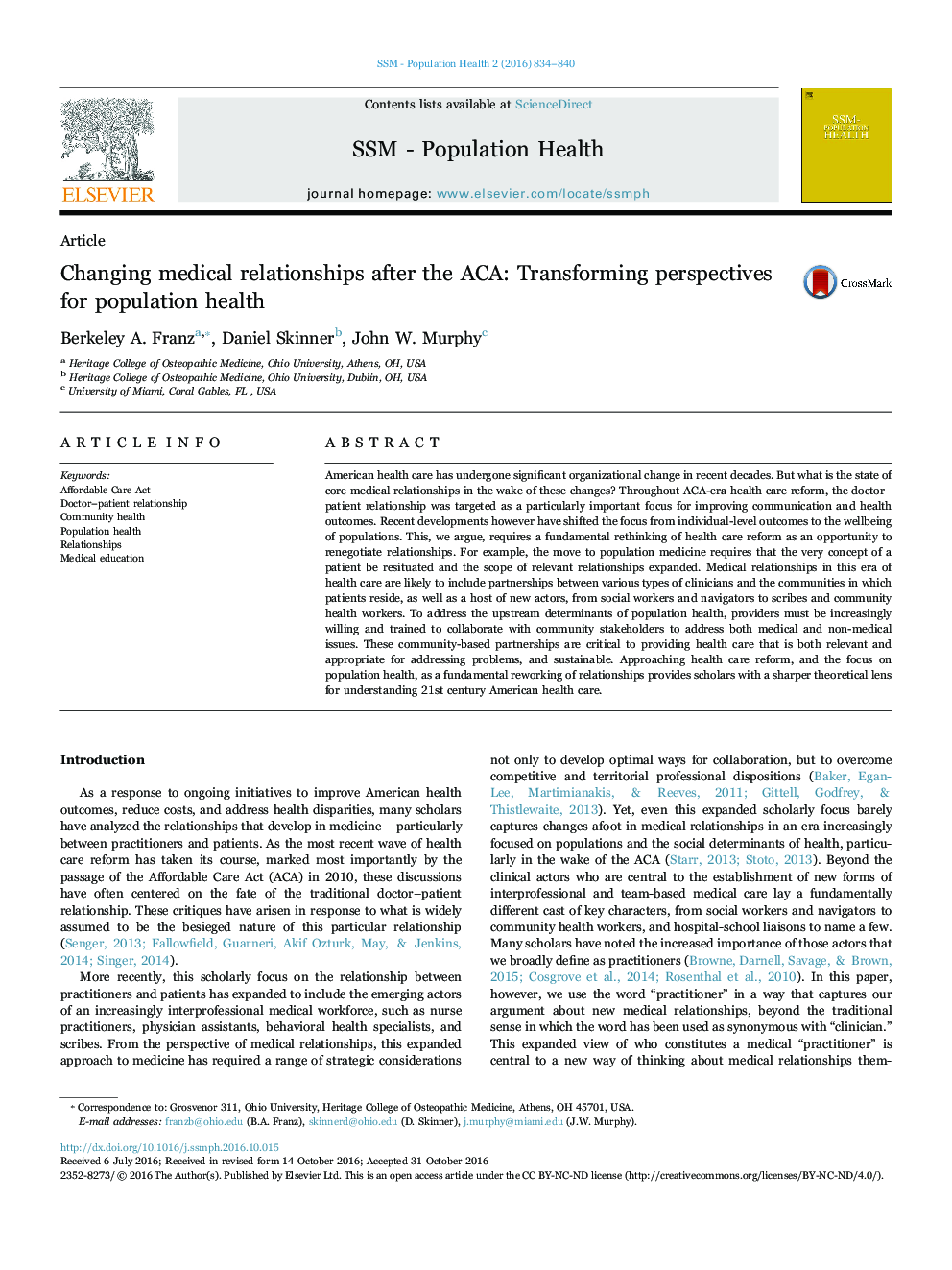| Article ID | Journal | Published Year | Pages | File Type |
|---|---|---|---|---|
| 7528415 | SSM - Population Health | 2016 | 7 Pages |
Abstract
American health care has undergone significant organizational change in recent decades. But what is the state of core medical relationships in the wake of these changes? Throughout ACA-era health care reform, the doctor-patient relationship was targeted as a particularly important focus for improving communication and health outcomes. Recent developments however have shifted the focus from individual-level outcomes to the wellbeing of populations. This, we argue, requires a fundamental rethinking of health care reform as an opportunity to renegotiate relationships. For example, the move to population medicine requires that the very concept of a patient be resituated and the scope of relevant relationships expanded. Medical relationships in this era of health care are likely to include partnerships between various types of clinicians and the communities in which patients reside, as well as a host of new actors, from social workers and navigators to scribes and community health workers. To address the upstream determinants of population health, providers must be increasingly willing and trained to collaborate with community stakeholders to address both medical and non-medical issues. These community-based partnerships are critical to providing health care that is both relevant and appropriate for addressing problems, and sustainable. Approaching health care reform, and the focus on population health, as a fundamental reworking of relationships provides scholars with a sharper theoretical lens for understanding 21st century American health care.
Keywords
Related Topics
Social Sciences and Humanities
Social Sciences
Health
Authors
Berkeley A. Franz, Daniel Skinner, John W. Murphy,
